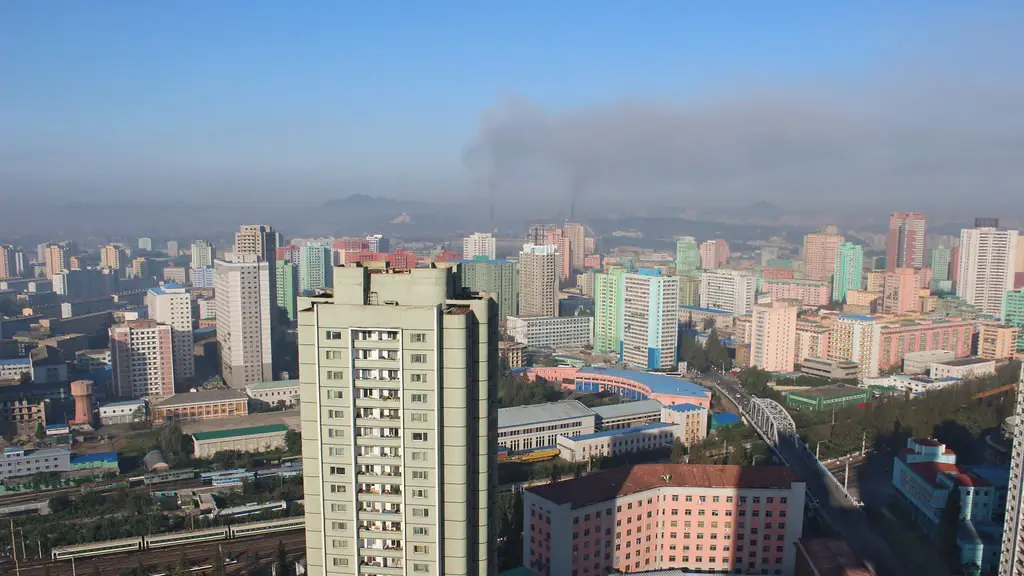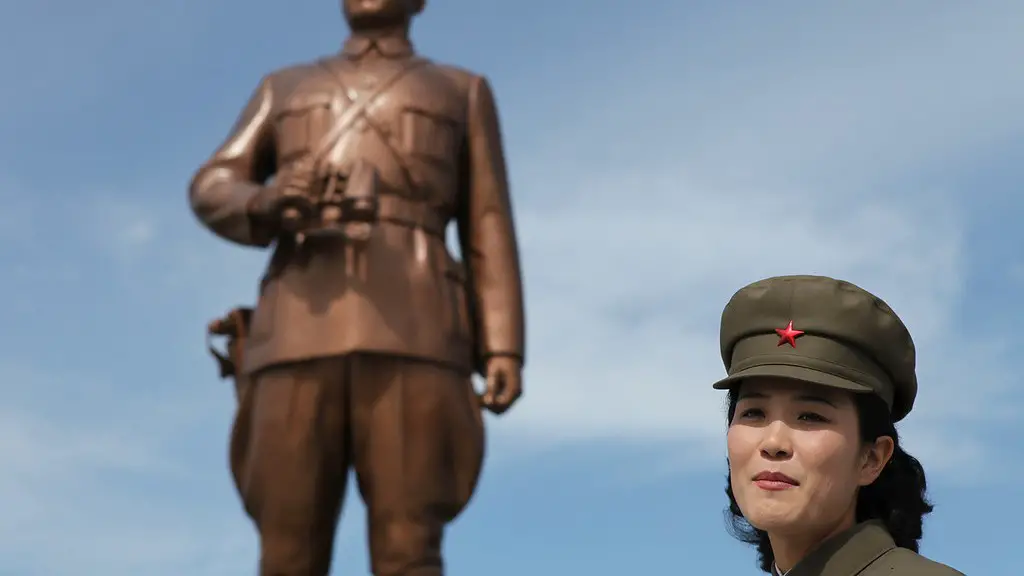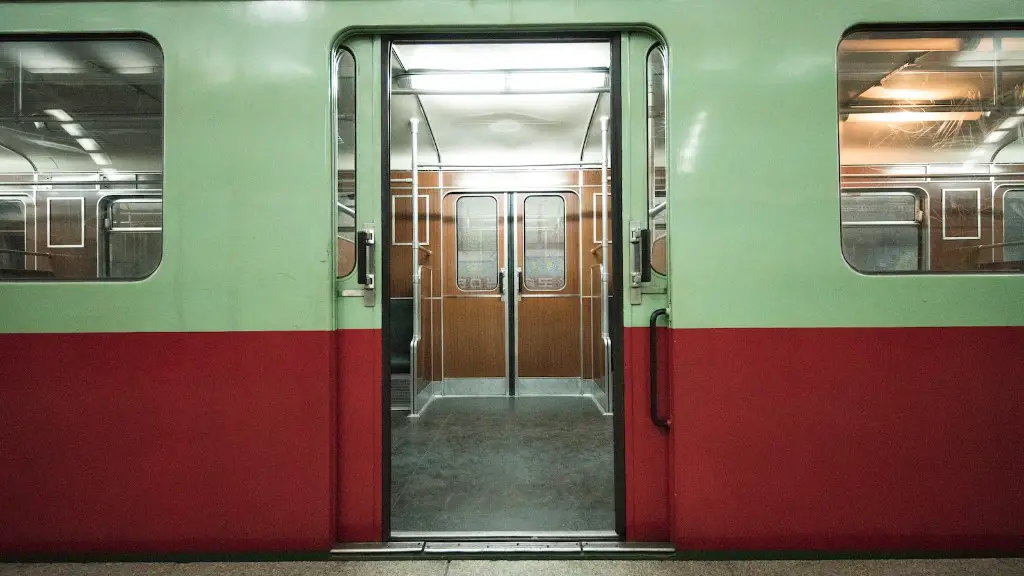Political Views
North Korea is widely considered as one of the most oppressive countries in the world, with its tight control over what its citizens can do and see, and the extreme sanctions it places on anyone deemed to have broken a law. As a result of this, the world has largely written off North Korea as a closed, dictatorship nation that is hostile to the international community – a view which is compounded by its atrocious human rights record.
North Korea’s relationship with other countries is littered with moments of tension and stand-offs. On the global stage, North Korea is seen as an unpredictable rogue state, willing to take risks that other countries wouldn’t take, like conducting a series of long-range missile tests. This has increasingly isolated the country on the world stage, as other nations have condemned these actions as a breach of international law.
It is not just the international community that is wary of North Korea. The US has historically seen North Korea as an adversary, with former president Trump focusing on denuclearising thecountry, while the current administration is pushing for diplomatic ties. China and Japan also have tense relationships with North Korea, due to their historical divisions, while South Korea faces a degree of antagonism across the boarder.
Despite the political tensions, North Korea has taken steps towards change in recent years. After several failed nuclear disarmament agreements, North Korea signed an arms control agreement with the US in 2018, marking a diplomatic breakthrough. In 2021, North Korea also launched its first satellite, a major step towards space exploration. However, these moves have not been enough to completely reverse the perception of North Korea as an aggressive nation.
Human Rights
Observers have condemned North Korea’s totalitarian system and its oppressive policies that could be considered a form of authoritarianism. The world has long been distanced from North Korea, largely due to reports of social deprivation, torture, forced labour, and public executions.
The United Nations estimates that between 200,000 and 400,000 people are held in North Korean concentration camps, and the Citizens’ Alliance for Human rights in North Korea has documented more than 300,000 people who were tortured in secret detention centers between 2000 and 2007.
Journalists and human rights activists are routinely harassed and persecuted when they seek to report on these conditions, and dissenting voices are silenced. North Korea has also been accused of using its diplomatic networks to kidnap and forcibly repatriate defectors.
In recent years, the US State Department has urged leader Kim Jong Un to discontinue these regressive policies, but change has been slow. The government describes its behaviour towards citizens as “guidance and education” rather than punishment, but most reports suggest it is anything but.
Economic Crisis
North Korea’s economic crisis has been well documented, however, the international community still fails to fully comprehend the severity of the situation. An estimated 30 percent of the population is described as being undernourished, while the state attempts to prop up the country’s stagnant economy.
North Korea’s main trade partner is China, and the country has been forced to rely on economic support from its neighbour to keep afloat. But due to ongoing trade sanctions, this support has dwindled in recent years, making the country’s financial future even more uncertain.
The country’s cash crisis has been exacerbated by sanctions, mainly imposed by the US. These have caused immense difficulties with international trade and banking, leaving North Korean firms unable to access the global market. North Korea has also seen a major drop in tourism since the US restricted its citizens from travelling to the country in 2017.
Media Views
The media narrative surrounding North Korea has been overwhelmingly negative, with journalists using words like “despotic regime” and “dictatorship” to describe the country. However, there has been a shift in recent years with journalists starting to pay attention to the human costs of the country’s policies, rather than focusing solely on the politics.
The internet has also provided an alternative view of North Korea, with a number of international journalists and bloggers attempting to provide a more nuanced view of what life is like in the hermit kingdom. This includes stories about everyday life in the country, or commentators highlighting some of the country’s recent successes.
Impact On World Politics
North Korea’s presence on the world stage is undoubtedly felt by the international community. It is a reminder of the fragility of the world’s political systems and how easy it is for a country to stagnate when extreme policies are enforced. Its nuclear program also places it in a unique position, where it has the potential to become a world power and threaten the security of other countries.
The world’s demand for a diplomatic solution to the North Korea situation has been made clear. But, it is still uncertain whether this will be achievable, especially considering the country’s determination to maintain its sovereignty and self-rule.
It is clear that North Korea is a major topic of discussion on the world stage, but it remains to be seen whether any progress can be made.
Technological Impact
North Korea’s technological prowess is often understated, especially considering its tiny population and isolated economy. With few natural resources and little access to foreign technology, North Korea has managed to build a range of nuclear weapons and aircraft as well as its own space program.
Despite international sanctions, North Korea has managed to develop sophisticated military technology, which it has used to threaten other countries, as well as its own people. In addition, the country has made huge investments in artificial intelligence and robotics, although much of the research remains in the early stages.
North Korea’s nuclear test sites have also attracted a lot of international attention in recent years, especially as it indicates the country’s desire to further develop its weapons capabilities. This has made the rest of the world concerned about a possible arms race in the region and has heightened international tensions.
Cultural Impact
North Korea remains closed off to much of the outside world, with citizens discouraged from engaging with other cultures. It is a highly patriarchal society, where men are in charge and women are expected to obey their orders.
Its traditional culture has been heavily guarded by the government, with its citizens expected to adopt the nation’s cult-like code of behavior. This code has been reinforced by a state-run media that regularly praises the country’s leaders and upholds North Korean values.
In recent years, North Korea has opened up more to the outside world, using its extensive diplomatic networks to export its own culture. K-Pop has become increasingly popular in North Korea, as has local North Korean music and traditional dance performances.
International Perception
North Korea is often viewed as an isolationalist state, but it is highly influenced by the outside world. As the country has taken steps to open up, the West has responded with sanctions, which has had the effect of further alienating the nation from the rest of the world.
The West’s continued call for North Korea to give up its nuclear weapons is seen as a punitive measure by some in the international community, but also as a necessary step for global security and peace. Still, many do not believe that denuclearisation will lead to lasting peace, arguing that it is just a way for the West to remove what it sees as a threat.
It is clear that the West is unable to come to an understanding with the North Korean regime. Some argue that the only way to begin talking is to decrease the level of hostility and begin diplomatic conversations. But, this isn’t seen as an attractive option for North Korea, which appears to prefer its current isolationist stance.
Local Perspective
To gain a sense of what North Koreans view their country like, one has to turn to interviews conducted with locals who are brave enough to share their stories. This can be difficult, as many North Koreans are scared of the repercussions from speaking out.
Despite the oppressive nature of the current regime, the majority of the population remains loyal to the country, with some celebrating the leadership’s efforts to secure their national identity. Many of them reject the idea of living in a Western-style democracy, and say that North Korea provides a level of stability that no other state can.
North Koreans also have a sense of pride in their culture, which is often overlooked by the West. This includes their shared history, traditional beliefs and unique sense of humour, which all contributes to a strong national identity.
Conclusion
It is clear that North Korea is a place of great complexity – one that is viewed in many different ways by people around the world. While the international community’s view of the country has gradually shifted in recent years, the opinions of those who live under its oppressive regime remain unknown. What is certain is that North Korea will remain a major point of contention on the world stage, and its attitude towards the rest of the world will continue to be scrutinised.


